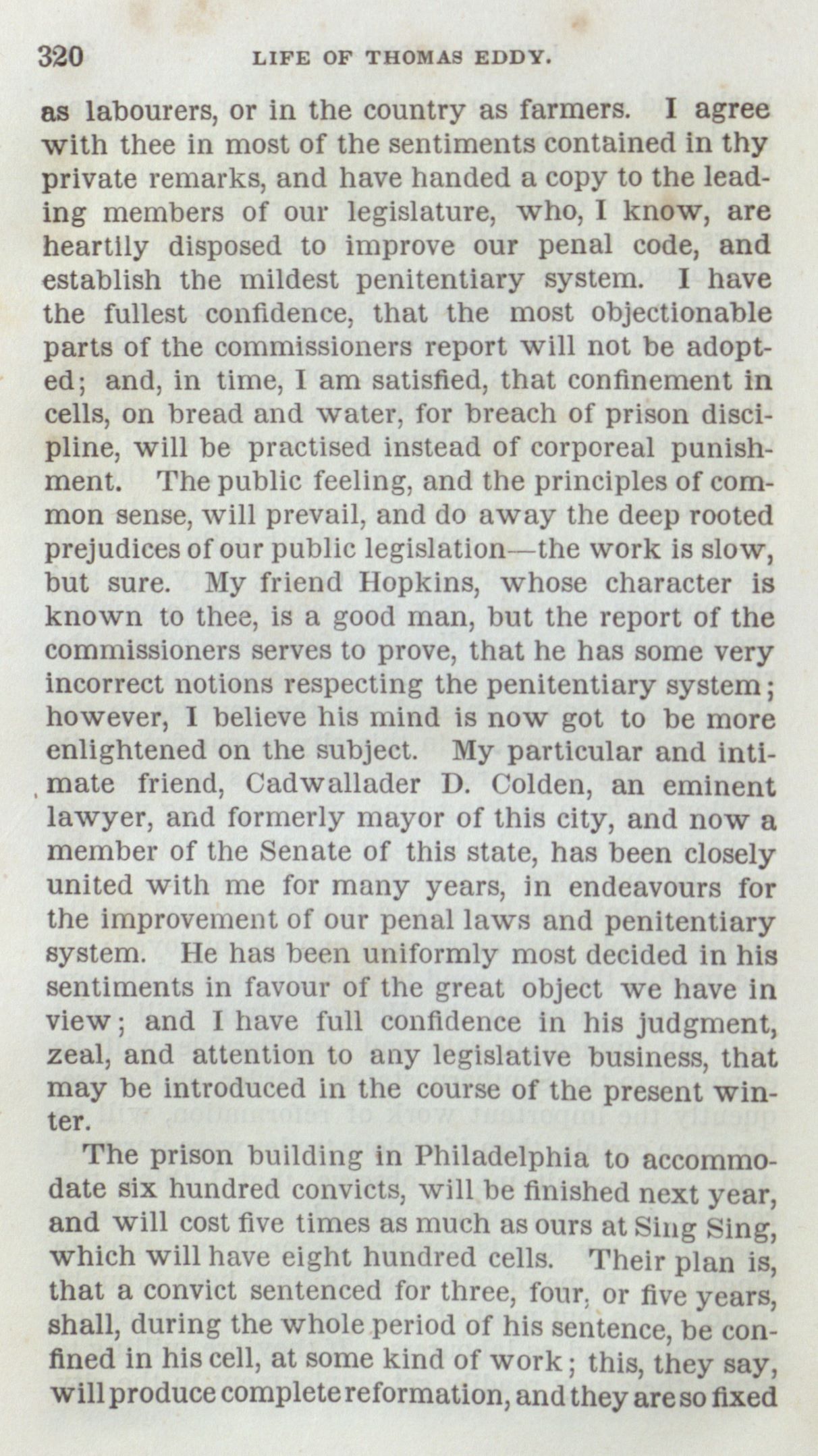as labourers, or in the country as farmers. I agree
with thee in
most of the sentiments contained in thy
private remarks, and have
handed a copy to the lead-
ing members of our legislature, who, I
know, are
heartily disposed to improve our penal code,
and
establish the mildest penitentiary system. I have
the
fullest confidence, that the most objectionable
parts of the
commissioners report will not be adopt-
ed; and, in time, I am
satisfied, that confinement in
cells, on bread and water, for breach
of prison disci-
pline, will be practised instead of corporeal
punish-
ment. The public feeling, and the principles of com-
mon
sense, will prevail, and do away the deep rooted
prejudices of our
public legislation—the work is slow,
but sure. My friend Hopkins
known to thee, is a good man, but the report of the
commissioners serves to prove, that he has some very
incorrect notions respecting the penitentiary system;
however, I believe his mind is now got to be more
enlightened on the subject. My particular and inti-
mate friend, Cadwallader D. Colden
lawyer, and formerly mayor of this city, and now a
member of the Senate
united with me for many years, in endeavours for
the improvement of our penal laws and penitentiary
system. He has been uniformly most decided in his
sentiments in favour of the great object we have in
view; and I have full confidence in his judgment,
zeal, and attention to any legislative business, that
may be introduced in the course of the present win-
ter.
The prison building in Philadelphia
date six hundred convicts, will be finished next year,
and will cost five times as much as ours at Sing Sing
which will have eight hundred cells. Their plan is,
that a convict sentenced for three, four, or five years,
shall, during the whole period of his sentence, be con-
fined in his cell, at some kind of work; this, they say,
will produce complete reformation, and they are so fixed

